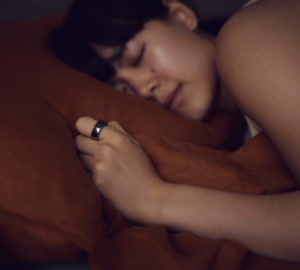By: Dr. Michael Breus
Are you a new parent? It’s likely two things are true in your life right now: you love your child deeply, and you also long for the sleep you once knew. While most of us weren’t getting enough high-quality rest before parenthood, parenting takes sleep deprivation to new and exhausting levels.
One recent study found that in their child’s first year, dads lose an average of about 13 minutes a night—that’s about 80 hours over the course of the first year. Moms lose an average 62 minutes in the first three months of their child’s life, and an average of 40 minutes a night over the entire first year, for a whopping 243 lost hours of sleep by their child’s first birthday.
In addition to losing significant sleep time, parents also experience major declines to the quality of their sleep; this same study found that parents’ satisfaction with their sleep doesn’t rebound to pre-parenthood levels until their children are six years old.
The sleep challenges facing new parents are often particularly intense, but the impact of sleep loss on parents is no different than for anyone else: insufficient and poor-quality sleep compromise the body’s mental, emotional, and physical health.
Here are some of the most important steps new parents can take to protect and enhance their sleep—and their children’s—during the first weeks, months, and years of parenting.
Create a sleep-enhancing environment for parents and baby
There’s a core set of environmental issues to pay attention to in maintaining a sleep-promoting environment for your family.
Temperature
For adults and children from infancy onward, the optimal sleep temperature is the same: 68-72 degrees Fahrenheit. For infants and young children who are napping, it’s particularly important to keep the temperature of sleeping spaces steady throughout the day and night. Adjust heating and cooling systems and sunlight exposure in bedrooms as needed, so sleeping areas are always nap-ready.
Noise
The barking dog, the slamming screen door–just a couple of the sounds that strike fear in parents’ hearts. White noise machines (or apps) can be effective in masking environmental noise and helping babies and young kids stay asleep, during naps and at night. And research indicates white noise may help adults fall asleep more quickly.
New parents need to pay particular attention to the decibel level of white noise. A 2014 study found that many white noise machines designed for use with infants produced a level of sound that could cause damage to babies’ hearing. To protect your child from noise-induced hearing loss, make sure the machine is placed no closer than 7 feet from your child’s crib or bed, and that the decibel level does not exceed 50 dB.
Light
Darkness is essential for stimulating the production of melatonin, a key hormonal sleep facilitator and regulator of circadian sleep-wake cycles. Keep lights in your house low and use blackout curtains to keep sleep spaces dark. If you’re using a nightlight, avoid white and yellow LED lights, which suppress melatonin in both children and adults. A red-light nightlight is an easy-to-find alternative that may be less sleep-disrupting light than other light wavelengths.
Set—and stick to—a nighttime routine
The sleep deprivation of the earliest months of parenthood is intense. You’re waking every couple of hours to feed your newborn, falling back in bed, and before you know it, it’s time for someone to get up again. These short stints of sleep deprive parents not only of sleep amounts, but also of time spent in deep, slow-wave sleep and REM sleep, two stages of sleep where the body undertakes significant physical and mental repair and rejuvenation.
If possible, carve up overnight parenting duties to allow both partners to get longer blocks of sleep, so you’re getting more time in these restorative sleep stages. Knowing your chronotype can help guide you: use you and your partner’s natural, biological preferences for evenings and mornings in divvying up late-night and before-dawn feedings, changings, and soothings.
Nap strategically
For new parents, “sleep when your baby sleeps” is a tried and true piece of advice. It’s how you can make up for the loss of overnight sleep. The goal for new-parent napping is to replenish sleep and boost your energy during your day without interfering with your ability to sleep at night.
Both short naps and longer naps have a place in a new parent’s sleep recovery strategy. I recommend naps in two intervals:
A 15-20 minute nap can give you a short-term boost to your physical energy and mental sharpness without leaving you feeling groggy when you wake up.
A 90-minute nap is a more deeply restorative daytime rest that can take you through a full sleep cycle, giving you some of the benefits of deep, slow-wave sleep and REM sleep.
Dads and moms can use the quick, 15-20 minute nap throughout the day, up to about 3-4 hours before bedtime. To avoid interfering with your nighttime sleep routine, I recommend avoiding a 90-minute nap within 5 hours of your anticipated bedtime.
And when you get to bedtime? Go to bed. Keeping as much of a consistent nighttime routine in place as possible will help you maximize your sleep throughout your early-childhood parenting months and years.
Set yourself up to fall back asleep quickly
Paving the way for a quick return to sleep depends a lot on what you don’t do while you’re up.
Don’t turn on bright lights. Use the dimmest lighting possible, and consider installing red-light nightlights around the house, rather than turning on overheads. (This includes trips to the bathroom.)
Don’t turn on the television, or power up your phone. These devices deliver a double-whammy to your ability to fall back asleep. The bright, blue rich light from these devices suppresses melatonin and stimulates alertness. And the content you consume will stimulate you mentally, pulling you further from the calm quietness of mind that eases a transition back to sleep.
Don’t start thinking about tomorrow. You’ve got an endless to-do list, but the middle of the night is not the time to doom scroll through it in your mind. As best you can, stay in the moment. Deep breathing and simple meditations can help.
Stay attuned to your mental health
It’s common for new parents to experience mental health challenges. Postpartum depression can occur for moms—and dads, too. Research suggests that 8-17% of moms and 7-9% of dads experience PPD. In fathers, PPD often manifests with feelings of being overwhelmed and not up to the task of parenting, and these feelings in turn can lead to feelings of anger and frustration.
Sleep is critical to emotional regulation and resilience. Alongside the other transformational changes of becoming a parent, the lost sleep of new parenthood can make parents more emotionally reactive and more prone to negative thinking, and increase feelings of stress, depression, and anxiety.
For more insights on sleep, check out our recent Q&A with Dr. Breus.











